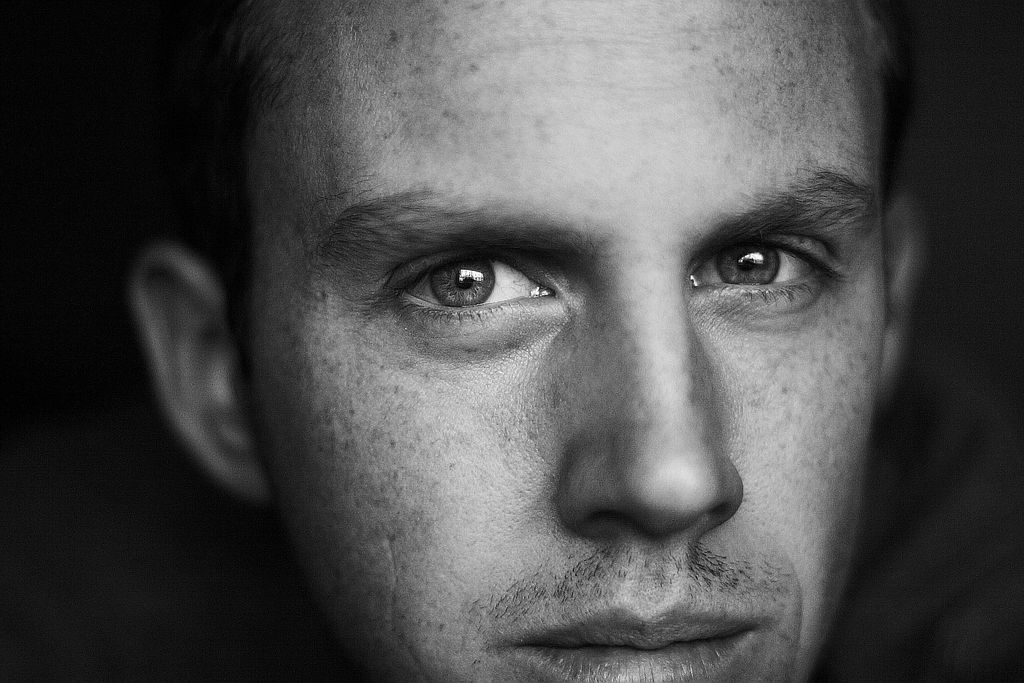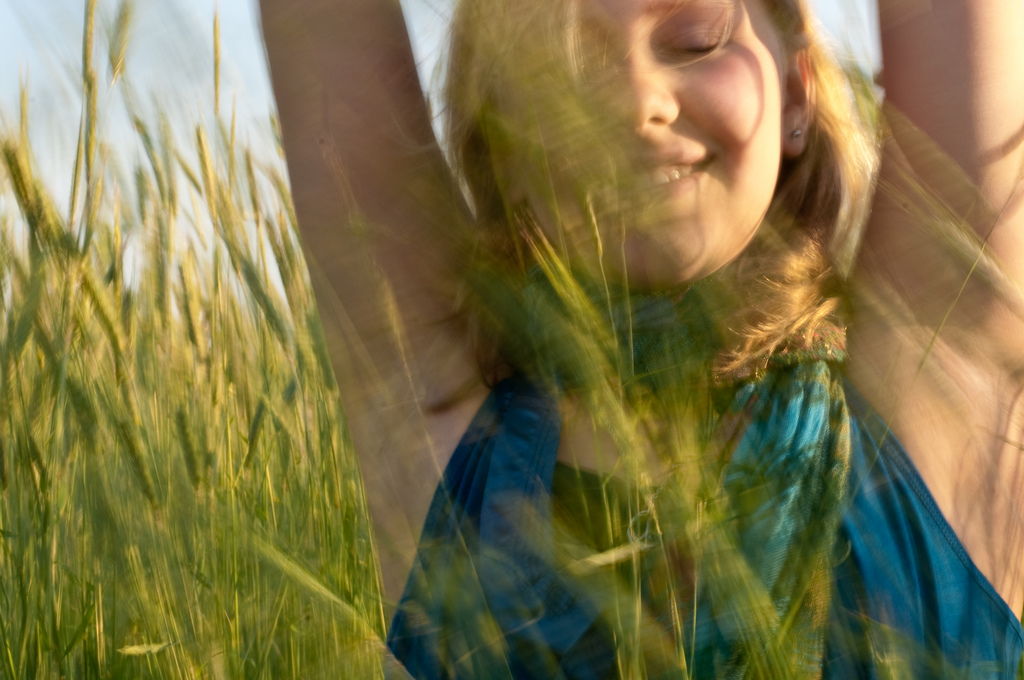Henry David Thoreau famously wrote that most people (‘the mass of men’) live lives of quiet desperation. Most of us probably wouldn’t describe our daily experience as ‘desperation,’ but there may be an uncomfortable feeling that we are drifting along, not having a clear aim, not having achieved what we dreamed about in the past and yet not knowing quite why.
Usually, this feeling is not painful enough to drive us into making any real changes, so the danger is that we can drift along like this indefinitely. Many people who have made significant advances in life have had periods of intense discomfort which have forced them to go inside, reflect and become more aware.
For most of us, there are things we can do to become clearer about where we are, what we want and how to get there. These practices may be less radical that sudden upheavals and painful experiences, but they can be uncomfortable – learning new things usually is – and a gentle persistence will be an important attitude to adopt if you attempt them seriously.
Meditation
The kind of meditation the Buddha is said to have taught is most closely reflected in Vippassana or ‘insight’ meditation. The technique is extremely simple: no special apparatus or prior knowledge is needed, just a quiet place and a period of time. All you have to do it sit comfortably with a straight back and observe your breath. Nothing more. In time, the practice is intended to bring about clarity and insight into the nature of the self, and that of reality.
Some years ago, I attended one of S. N. Goenka’s famous ten day Vippassana retreats. The Goenka organization is a worldwide group dedicated to teaching the practice of insight meditation. The retreats are tough – many hours of meditation, only two small meals per day, basic communal facilities such as dorms, and a strict code of silence. Attendees are not allowed phones, books, journals or any other form of intellectual stimulation.
The Goenka courses are excellent in the sense that they force you to meditate – there are quite literally no distractions, and one is forced to face up to the many obvious – and subtle – ways in which we try to avoid a practice which is so alien to our restless mind and which forces us to face some uncomfortable realities. But for those not quite ready to take the plunge, there are plenty of online courses available, such as those offered by Wildmind. It is also usually possible to find a local meditation centre offering guided evening sessions.
Mindfulness
Meditation is a way of focusing on the present moment in a very intense kind of way; the practice of mindfulness is a way of being present throughout the day. It just means watching yourself, being a silent witness to your own feelings, thoughts and reactions, in order to gain clarity about everything you do, feel or think. We usually move through life in a fairly unconscious state, responding to circumstances in a conditioned way, unconscious repetition of learned behaviors.
Becoming more mindful is not easy – it requires a great deal of practice but will, in time, lead to a great deal of clarity and insight into what drives us. With this knowledge, we can make better choices and exert more control over how we respond to situations and hence what we experience.
Two books I particularly recommended are Awareness by Anthony de Mello and Mindfulness in Plain English by Bhante Gunaratana. De Mello’s book is full of anecdotes and stories which underline the importance and the (sometimes surprising) consequences of being more ‘awake .’
Our connection with the natural world
Although we might sometimes be tempted to see ‘nature’ as ‘something out there,’ separate from our experience, we are, of course, very much a part of the environment, and we naturally feel more centered and clear when we are close to our natural environment. We haven’t been living in houses and apartments for very long, and city living is a particularly new innovation which can be very stressful.
It is helpful to find time regularly to spend time in a more natural environment. This doesn’t have to mean trekking through the jungle – even walking through a park or a garden can bring great benefits. In Hong Kong, where I have lived for many years, it can be extremely difficult to find the time and the opportunity to get out into nature, but it is possible, and making a conscious effort to do so enables me to maintain more balance and perspective. If I can do it here in Hong Kong, I think almost anyone can!
Making friends with our mortality
Death is something we often try to avoid thinking about, and yet it is one of the very few things we all have to face up to sooner or later. Only when it is forced into our attention – such as when a friend or loved one dies – do we really think about it.
Some months ago, a very good friend of mine died after a long illness, and I was forced – as he was, although in a less intense way – to come to terms with the fragility and the brevity of life. I can personally attest to the clarity such a process brings.
It has been said that all our fears stem from an underlying fear of death, and so coming to terms with this most basic and primordial event may hold the key to living more fearlessly and achieving more. The rapper 50 Cent (Curtis Jackson) attributes his success partially to having had to face death – quite literally. He was shot nine times just as he was on the verge of signing a lucrative record deal. He almost died and spent quite some time in hospital, alone with his thoughts.
I once attended a series of talks given by a Buddhist monk. He said the reason monks are so happy is because they think so often about death. They truly understand the shortness and the sweetness of life. They don’t waste time.
Facing the truth
Clarity, in a sense, is the key to everything – a deep understanding of how the world works and, most importantly, what drives and motivates us, allows us to act with skill and to be more successful and content. There is no end to the stories we tell ourselves and the mental gymnastics we perform to hide ourselves from the truth. But a radical and comprehensive honesty is a prerequisite for gaining clarity.
Fifteen hundred years ago, a wise man wrote, ‘Know the other, know yourself, and the victory will not be at risk; know the ground, know the natural conditions, and the victory will be total’ (Sun Tzu, The Art of War).
Photo by Robby Mueller






Hi Mark,
This is a lovely post with many helpful suggestions.
Mindfulness and meditation support us in connecting with our inner world. Until we become aware of the belief systems and emotions that confuse us, full clarity will be elusive. Once we see how we complicate our lives by these patterns, we can stop figuring things out and let our natural wisdom shine through. It’s in there! It’s a matter of letting it be seen once our should’s and expectations fall away.
What a beautiful reminder. It is easy to be so busy we are barely aware of what is actually going on around us, and it is those small things which change a mundane day into a time of happiness.
Many thanks,
Kate
http://www.improvedconfidence.com
I think the sentence “But a radical and comprehensive honesty is a prerequisite for gaining clarity.” is so very true. I see so many people who are trying to achieve clarity but have yet to be truly (not brutally, but authentically) honest with themselves. So, clarity evades them. Honesty can be challenging, uncomfortable, someones down right confronting – but it’s also a release, and life after honesty is a better place!
Topi
Learning presence is the one major change I’ve made this year to become fulfilled and clear. It’s actually clarity on another level of being. You can never go back once you’ve experienced it. Look up Eckhart Tolle guys!
its great that you reminded us of that mark
once someone gets stuck in the daily routine he losses connection with everything else
his creativity is reduced and even his problem solving abilities
thank u for this post once again :)
Nice post. Mediation is still someone I’m trying to get around to starting – I’m very interested in the idea. Also, thinking about death is something I pondered a lot at one point in my life and it puts everything into perspective and it definitely gives needed clarity.
Hi Mark.
I like that you titled the one section “making friends with our mortality”. We can easily become afraid by thinking about all the risks associated with our mortality, or about what could occur tomorrow, but that is not beneficial to our daily functioning. On the other hand, we can have some gratitude about our time and presence, thus motivating us to continue forward. A smart person only uses thoughts to promote themselves upward. Society weeds out the rest.
I hear you about the part regarding the natural world. If I don’t spend time in natural settings every once in a while, I start to feel off. It is an important part of my extended routine. If I cut out exercise and this nature time usage, it would be very tough to do much else.
Great to read. Inspiring. Good to see such positive posts on this blog and great comments too. Thank you
Mark you raise a significant point in mindfulness and its paradox. As it sounds the mind should be full yet, as you say, in reality it’s about being a silent witness to our thoughts and feelings. With cluttered, chattering, information rich minds todays humans may find that a challenge too far. Yet, it brings all the joys and peace they could ever want. Your conclusion is spot on; we need to face the truth. Less truly is more
Excellent post mark. I try to practice mindfulness on a regular basis. For example conciously changing the route I go to work. Consciously choosing to tuen right or left when I leave the house and not taking anything for granted. Love the Sun Tzu quote.
I really appreciated the advice in this article. It’s not easy to make an complete change in direction from the rat race life to conscious living, but it is easy to back slide. That’s why helpful advice like yours is so valuable to those who are determined to make the transition. It’s actionable and can be immediately used to chart a new course.
Namaste
TiTi
“It has been said that all our fears stem from an underlying fear of death.”
This reminds me of a quote by Mark Twain that says that our fear of death springs forth from our fear of life. People who have fully learned how to live easily come in to terms with death.
Thanks for this post Mark.
Charlie
Mindfulness and meditation can certainly help balance the noise of the world; however, one may be equally (or better) served by simply turning down the noise in a more permanent way, as opposed to simply tuning it out at intervals.
In other words, discovering the Self is very much a process of uncovering the Self. Turn off the TV, read only social media you have mindfully chosen — not those that have stolen your attention, unsubscribe to periodicals, stop reading, watching or listening to “the news,” and make a slow and deliberate effort to find a career that is YOU.
Meditation treats the symptoms well but does not eliminate the disease.
Thanks for provoking thought…
Kent
In a way, your post sends out the message that life is indeed short. It’s funny how sometimes people feel that a significant amount of years has flown by and that when you looked back it’s as if you’ve accomplished nothing. Then, the feeling of unimportance and “silent desperation” settle in. I believe that when a person says he wants to turn his life into something better, he can. The answer lies on how he motivates himself to start ang continue his journey toward his goal and finally, success.
very good post, after a long time I have read something worthwhile :)
Great article and I agree that meditation can be a great help in gaining clarity and happiness. It should also be balanced with mindful planning and assessment to move towards one’s goals.
Good article.
There is great sense in slowing down and just “being” for a while. Meditation is something I have been doing more and more recently. According to cultural values, I suggest it can also be described as prayer to whatever deity that may be. Lets face it, that has been around for as long as conscious human existence can be measured.
Thank you.
Hi Mark,
Just a small point: ‘The Art of War’, by Sun Tzu, was written around 500BC which makes it 2500 years ago, not 1500 (500AD).
All the more remarkable in that it is still set as required reading in many military academies, advertising and business educational enterprises. A large number of famous generals of the 20th century credit The Art of War as a crucial strategy tool for their most successful campaigns.
As the French say “Plus ça change – plus c’est la même chose”. An epigram by Jean-Baptiste Alphonse Karr in the January 1849 issue of his journal Les Guêpes (“The Wasps”). Literally “The more it changes, the more it’s the same thing.”
Paul
About 7 years ago my family participated in 40 weeks of DBT(Dialectical Behavioral Therapy) and it was there that I learned about mindfulness. It was tough at the time, but today I am so grateful for the experience.
Hi Mark,
Thanks for sharing your insights with us. I too did the Vipassana course about four years ago and found it extremely challenging and illuminating.
I’ve been practising mindfulness now for over a year and have had a lot of success with it in terms of raising my self awareness. For instance by applying mindfulness to my life I became aware of the underlying role that fear was playing itself into my life through procrastination. You can read more about it here : http://bit.ly/1brjL9u
As I understand it mindfulness is meditation in action and can be extremely beneficial in getting to understand the underlying patterns that drive us without our being aware of them
Thanks for sharing your thoughts.